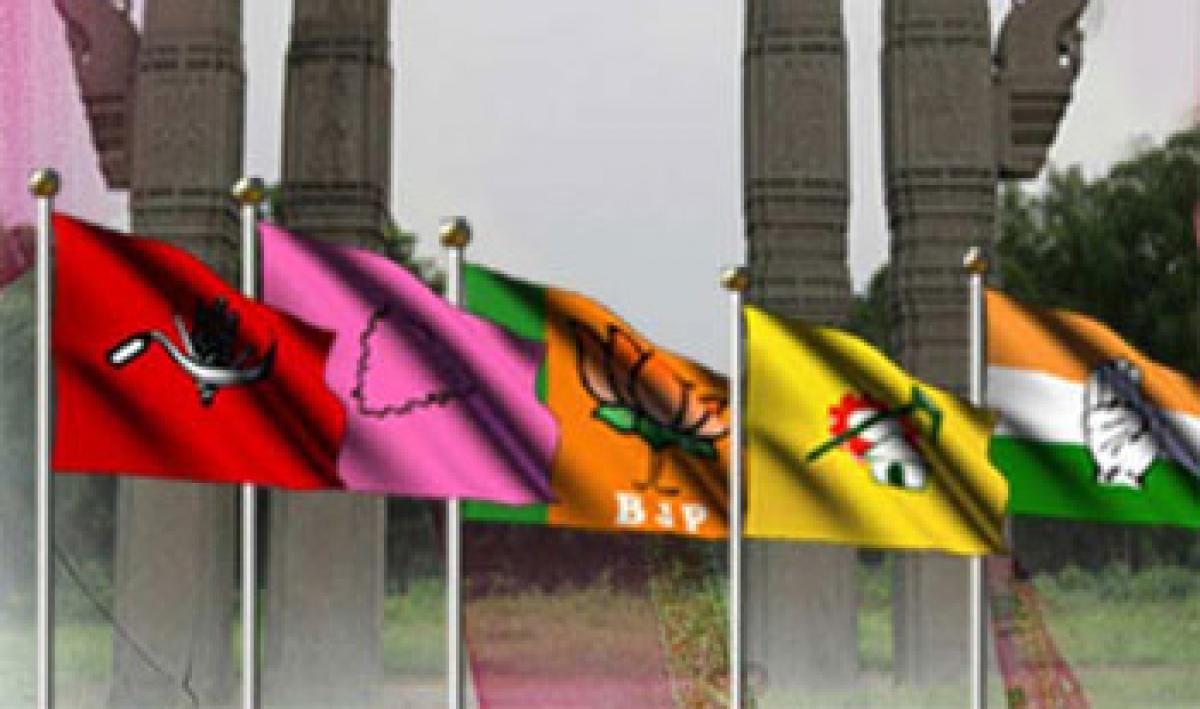Live
- A Guide to Temperature and Humidity Standards in Data Center Server Rooms
- Gadwal collector briefs on details of voters
- Jupally Krishna Rao takes part in Alampur rallu
- Bharath Prasad files 3rd Nomination
- Baisakh Month: A Time of Auspicious Beginnings and Sacred Festivals
- Oust BJD govt for overall development, says Shah
- Unveiling the Hidden Gems: Surprising Health Benefits of Garlic Peels
- Overcoming Sleep Struggles: A Comprehensive Guide to a Restful Night
- RTC bus hit the auto
- MLA Kuchukula Rajesh Reddy participated in the Birappa festival
Just In

The Kapu agitation suddenly turned violent. Though, the underlying political current was discernible, the unexpected turn of events has taken even the government by surprise.
The Kapu agitation suddenly turned violent. Though, the underlying political current was discernible, the unexpected turn of events has taken even the government by surprise.
The incidents reflect the failure of the administration to gauge the mood on the ground. There seems to be an intelligence failure in assessing the strategies of the organisers.
The events preceding the outbreak of violence and the subsequent course of agitation strengthened the feeling that this is not a spontaneous outburst of angry crowds but a well-planned action to give the protracted agitation a striking power.
The leadership of the agitation has given a public call to block the rail and road ways. Given the massive mobilisation, such a call is bound to create an unmanageable situation.
Even after the violence, the organisers continued with their militant protest indicating that turn of events may not perhaps be a sudden outburst. The developments indicate competitive politics responsible for simmering discontent among this vocal and rather militant section of Andhra Pradesh population.
The Kapus have become much more decisive after the bifurcation. The combination of Kapus, Telagas and Balijas (KTB) has further consolidated their strength.
Chandrababu Naidu coming to power has certainly given a new hope for Kapus to realise their long pending grievance of reservation. Political parties have always played with the emotions of Kapus for their electoral dividends.
In 2014, the TDP - BJP combine was in the forefront of this social engineering to capitalise on Kapus’ emotions. The YSR Congress Party has lagged behind.
Chandrababu Naidu attracted Kapu leaders influential at the constituency, district and State level into the party fold by assuring party tickets for them. Some of them were given tickets as a group, also creating an impression of Kapu exodus into TDP.
Chandrababu Naidu sympathetically responded to the long pending demand of the Kapus for backward class reservation. The Pawan Kalyan support factor also contributed to the drift of Kapu voters towards the TDP-BJP combine.
Thus Kapus for the first time in three decades voted in such large numbers for the TDP. This is evident from the fact that TDP won overwhelmingly in the constituencies where Kapus are numerically strong. All this has further reinforced Kapus' hopes on Naidu to deliver.
Naidu's prime promise was providing jobs. But significant action still waits on this front. Though TDP government has taken certain measures in regard to the implementation of promise of reservations for Kapus, the move seems to be an attempt to further procrastinate the protracted issue rather than finding a solution.
There are political, constitutional and legal hurdles too. The opposition from other backward castes and the apex court verdict on Jat reservations that may have an implication for Kapus prove to be impediments.
The TDP cannot hope for any monopoly over social engineering for political purpose. The opposition parties obviously jumped on to the Kapu bandwagon to cash in on government's predicament.
Decades of political deceit have infuriated Kapus. The youth are restless even as competitive politics continue to fish in troubled waters. Thus the events of Sunday are a culmination of manifest discontent fuelled by competitive political populism.

© 2024 Hyderabad Media House Limited/The Hans India. All rights reserved. Powered by hocalwire.com







